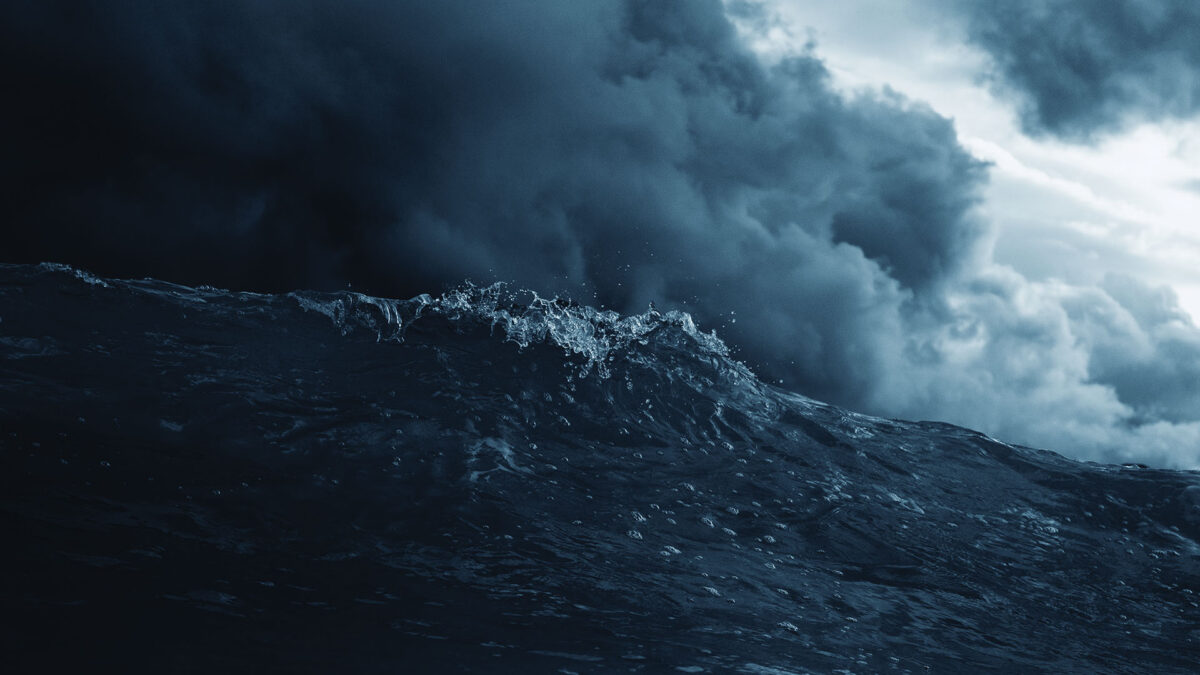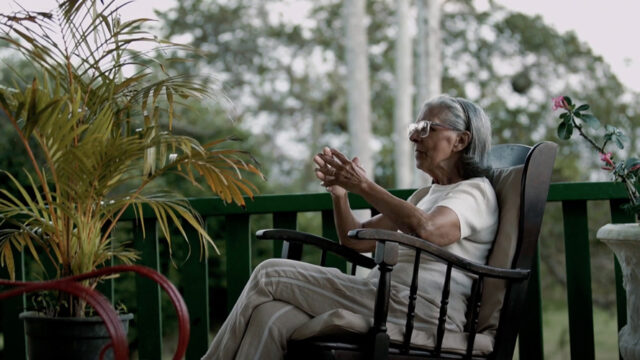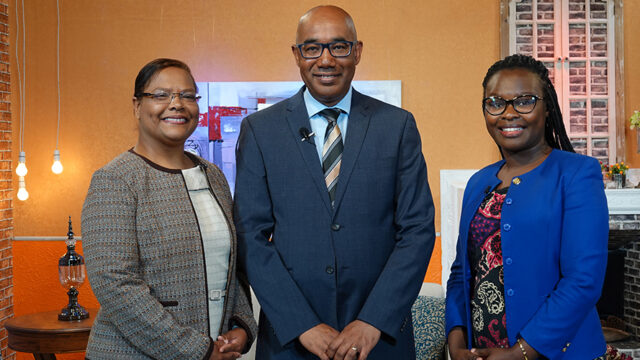Neither age, nor health, nor race, nor wealth protect us from a tiny enemy we cannot see.

When we were children, it seemed sometimes that we controlled the world.
We held stubby fingers up before our eyes, and beloved family members disappeared—but only for a moment.
We laughed, and a roomful of adults stopped all their busy talking to laugh uproariously with us.
And when we cried, the world ceased all its normal turning, for people rushed to hold us, clean us, comfort us, or feed us.
We prayed for lost kittens and puppies, and (mostly) they came home. We prayed for the safety of those who went to share the gospel, and they returned with tales that validated all our prayers.
There was, we thought, a straight connection between our actions and the happenings around us. When we were good, the sun broke through the clouds. When we were angry, churlish, selfish, mad—things only went from bad to worse.
Bicycles or cars broke down on Friday afternoon because we hadn’t adequately prepared for Sabbath. Friendships ruptured because somewhere, somehow, there was a sin we never had confessed. In the universe we knew, good things happened to people who made wise and good choices. Bad things—terrible, unspeakable things—were waiting for those who lived without the law. Because we finally learned that “there is none righteous, no, not one”—not us, not me—we wondered if the fire that burned the barn or the accident that broke a wrist was somehow heaven signaling us of our lost innocence and poor choices.
But then there come events so cosmic and so vastly scaled there seems no way anything in us could be the cause of them. National economies slide into debt, and currencies are devalued. Corruption reigns where justice ought to sit, and all our moral compass seems reversed. A terrorist attacks an oil lagoon 10,000 miles from where we live, and suddenly, we find it difficult to fill the fuel tank.
Wildfires rage and icebergs melt. Hurricanes and typhoons spin across vast oceans, targeted, it seems, on just those places where the misery will be greatest. Coral die; species disappear; and coastal cities watch their gleaming towers succumb to rising seas.
A great pandemic sweeps the globe—carrying off the righteous and the uncaring, the faithful and the atheists. Neither age, nor health, nor race, nor wealth protect us from a tiny enemy we cannot see. And with each COVID death of one we know, of one we love, we lift our weeping eyes to heaven and murmur in our grief, “Don’t You care if we perish?”
The storms of everyday existence in the twenty-first century are real enough, and we have come to realize that there are larger, darker forces as their cause than anything we did, or any choice we made. “For we are not contending against flesh and blood, but against the principalities, against the powers, against the world rulers of this present darkness, against the spiritual hosts of wickedness in the heavenly places” (Eph. 6:12, RSV).1 Like overtired and fearful disciples clinging to a sinking boat, we wait impatiently for rescue: “How long, O Lord? Will you forget me forever? How long will you hide your face from me?” (Ps. 13:1, NRSV).²
And there, in the stern of our boat, lies the One in whom we have been taught to trust, sleeping the imperturbable sleep of innocence and faith.
It’s enough to make grown men and women gnash their teeth, for we have it as a rule of what we call our “faith” that everyone is needed in a crisis. “All hands on deck,” the navy motto goes when calamities require every resource and could-be sailor possible. At minimum, we mutter, Jesus could be bailing water with us. He should be manning oars, or hauling down the broken mast. Because we are having an emergency in our lives, we assume He should be having an emergency in His.
But still He sleeps—no, actually, He rests—within the hollow, not of a boat, but of His Father’s hands. And while He dreams of thousands He will feed and bodies He will heal and eyes He will cause to see, we feel our helplessness and panic transform to caustic indignation. We now blurt out what once we only dared to think: “Don’t You care if we perish?”
“This is my job, Jesus, that I’m losing. How will my family eat?” “This is my neighborhood the typhoon destroyed. How can we ever rebuild?” “This is my wife, my husband—the one you gave to Me—now in the hospital barely able to draw breath, unable to communicate.”
These are the questions born of fright, but they seem deadly urgent. Faith in this moment seems akin to “God helps those who help themselves” (and other unbiblical ideas). We insist that the answers to our crisis lie in the means we have at hand—in stabilizing a capsizing boat, in bailing water, in keeping oars in oarlocks.
We can’t imagine One who rises from His rest to stand there in the filling boat and call the winds and waves to heel. We cannot see that He who slept in innocence has in His hands a vast omnipotence. His answer is beyond our sinking imaginations, for He controls the very forces we have deemed most deadly: “The waves and winds still know His voice, who ruled them while He dwelt below.”³ He knows that, terrible as it is, this storm is not the biggest one that will yet invade our destinies.
“Whether the wrath of the stormtossed sea
Or demons or men or whatever it be,
No waters can swallow the ship where lies
The Master of ocean and earth and skies.”⁴
And the calm He creates, and the gentle lapping of the waves upon the suddenly-stable boat are as surprising as the storm that swept down from the canyons. The pain and tension of clenched muscles and clenched minds gradually subside as we are now overtaken by a new and righteous fear—or rather awe—the fear another dull disciple once confessed in the bottom of another boat: “Depart from me, for I am a sinful man, O Lord” (Luke 5:8, RSV).
We sense again our deep unworthiness—not as the cause of all that happened, nor as the ones whose bad behavior generated big storms—but how much we are held by grace, even in emergencies; especially in emergencies. He who shared the soggy bottom of a boat with 12 desperate, frightened men now shares the bottom of your boat as you peer over the gunwales at a world still threatening more illnesses and storms.
Jobs will still be lost, and pets will disappear. Rebuilding houses and communities will be both hard and slow, and broken relationships will be healed only at the pace of humility and love. We will still grieve when dear ones breathe their last, or sink to places conversation cannot go. But we have seen the vital vision of a Lord who never leaves a sinking ship, or turns His face when we are in calamities. Against the roiling waves and surly clouds we see the silhouette of Him who has committed to bringing us to His eternal harbor. We now have this certainty that nothing “will be able to separate us from the love of God in Christ Jesus our Lord” (Rom. 8:39, RSV)—not height of storm, nor depth of sea; nor crises now, nor crises yet to come; nor life cut short, nor death delayed; nor any other thing in all creation.
“So we do not lose heart. Though our outer nature is wasting away, our inner nature is being renewed every day. For this slight momentary affliction is preparing for us an eternal weight of glory beyond all comparison, because we look not to the things that are seen but to the things that are unseen; for the things that are seen are transient, but the things that are unseen are eternal” (2 Cor. 4:16-18, RSV).
¹ Bible texts credited to RSV are from the Revised Standard Version of the Bible, copyright ©1946, 1952, 1971, by Division of Christian Education of the National Council of the Churches of Christ in the U.S.A. Used by permission.
² Bible texts credited to NRSV are from the New Revised Standard Version of the Bible, copyright © 1989 by the Division of Christian Education of the National Council of the Churches of Christ in the U.S.A. Used by permission.
³ Katharina von Schlegel, tr. Jane Borthwick, “Be Still, My Soul” (Hagerstown, MD: Review and Herald Publishing Association, 1985), 461.
⁴ M. A, Baker, “Master, the Tempest is Raging” in The Church Hymnal (Takoma Park, MD: Review and Herald Publishing Association, 1941), 677.







